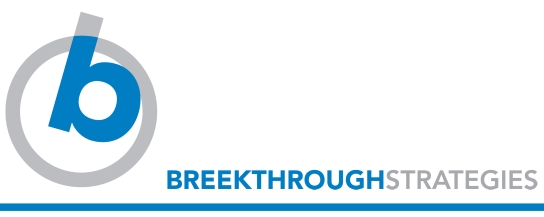“PROBLEMS ARE GOOD” – What did you say?

The concept that “problems are good” can seem outlandish. Surfacing problems or admitting to mistakes in some workplaces can be seen a political misstep, betraying the team or reflecting badly on an individual’s personal performance, standing and reputation in the firm.
As a manager have you ever observed a high potential individual become suddenly devastated by making a mistake? Typically this individual has grown accustomed to significant support, interesting work, mentoring by a senior person and has been shielded in many ways from errors. Their ability to recover from a setback can be seriously damaged in cultures where mistakes are not recognised as part of the experience and are avoided. Employees tagged as top talent want to be winners.
The Neuroscience Around Surfacing Problems
The field of neuroscience offers some insights into how people cope when things go wrong in organisations.
For instance, a neurotransmitter called dopamine is the key to decision-making. Dopamine helps us decide among alternatives. Dopamine cells carefully monitor a situation and automatically detect patterns based on experience – if X occurs then Y will happen.
If expectations are met, dopamine releases. We experience the pleasure of being right. If expectations are not met, the cells stop releasing dopamine. We feel upset. Expectations are then quickly adjusted in the light of new information. Future predictions are revised to reflect reality. Long term lessons are embedded. Every time you make a mistake or encounter something new, your brain cells are busy changing themselves.
Of course we cannot avoid these dopamine deficits when mistakes occur. This activity is essential for sound decision-making. If we can’t incorporate the lessons of the past into future decisions, then we are destined to endlessly repeat our mistakes.
What’s Better – Being Intelligent or Working Hard?
Carol Dweck, a psychologist at Stanford, demonstrated that the ability to learn from mistakes is crucial. Dweck separated children into two groups. Children in one group were praised for their intelligence: “you must be very smart”. Children in the other group were praised for their effort: “you must have worked really hard”. The children in the effort group chose more difficult tests and worked harder at figuring out puzzles. They were prepared to challenge themselves, even if it meant failing at first. They wanted to understand their mistakes, learn from errors and figure out how to do better. They performed better overall. The intelligence group was easily discouraged, and saw mistakes a signs of failure. Failure was so discouraging that they actually regressed in performance.
Children are often praised at school and adults at the workplace for being smart. People conclude that mistakes are signs of stupidity and not as the building blocks of knowledge.
Implications for the Corporate World
What is the relevance of this research for the world of work? Developing a body of expertise is comes from using your intuition. Intuition emerges from the brain adjusting to error. The brain needs practice in investigating mistakes. We need sufficient experience of both successes and failures to make sound judgments. Tal Ben Shahar cites fear of failure as the key detractor of learning, leading to lack of creativity and procrastination.[1]
How can we relate this insight to the corporate world?
Here are a couple of suggestions:
- Recruitment and Selection Practises
Many organisations look to hire the smartest graduates. They reward them for performance by putting them on high potential programs or promotions. Are these organisations sending a message of “look smart, don’t risk making mistakes”? Perhaps the selection process should explore resilience and self reflection as core capabilities. For instance, some employers extensively probe candidates about when they experienced a setback or made a mistake and how this situation was handled. Some make room for graduates who may have failed a subject or left for a time and then come back to study with more tenacity and wisdom.
- Performance Management and Reward
Neuroscience suggests that two of the key functions of the brain are to minimise danger and maximise reward.
This has direct implications for performance management systems. HR practitioners know that once-a-year performance appraisals are not effective on their own. Such one-off appraisals raise anxiety and stress in individuals. Individuals are often less than objective in their assessment of their performance, especially when the outcome is coupled with annual salary reviews or bonuses.
A system that only rewards successes and does not acknowledge the learning gained from resolving problems will get what it asks for – minimal risk-taking and maximum focus on playing it safe. This compromises organisational learning.
- Leadership
Effective leadership is about creating the conditions and climate whereby the potential of each individual is optimized. People should feel engaged and stimulated by work.
Effective leaders create an environment where problems are surfaced, calculated risks are encouraged and support is provided to learn from mistakes. These approaches tap into the brain’s love of learning. They optimize individual, team and organisational performance. Is this how your staff are invited to appraise their leaders in your 360 surveys?
Further Reading
Jonah Lehrer, The Decisive Moment, How the Brain Makes Up Its Mind, 2009, Canongate Publishers.
[1]Shahar, T.B. (2010) “Learn to fail or fail to learn.” Keynote speaker at Mind and its Potential Conference, Sydney.
